Welcome to the Virology community at Cornell University!
Our goal is to foster a community among the many virology laboratories here at Cornell, by providing opportunities to discuss current topics in virology and sharing information about activities, collaborations, and opportunities going on here. There are a number of different faculty at Cornell who participate in the program, who you can read about here. If you need more information, reach out to Colin Parrish (crp3@cornell.edu) or any other faculty member. We use a Cornell e-list to share information about our activities, journal clubs, and seminars. You can join by emailing virology-l-request@cornell.edu and including “join” in the subject line.

Bailey Lubinski presents the results of her research at her Ph.D. final exam seminar, March 2025.

Femi Adu presented the results of his Ph.D. research on parvoviruses and influenza viruses and their interactions with host antibodies in March 2025.
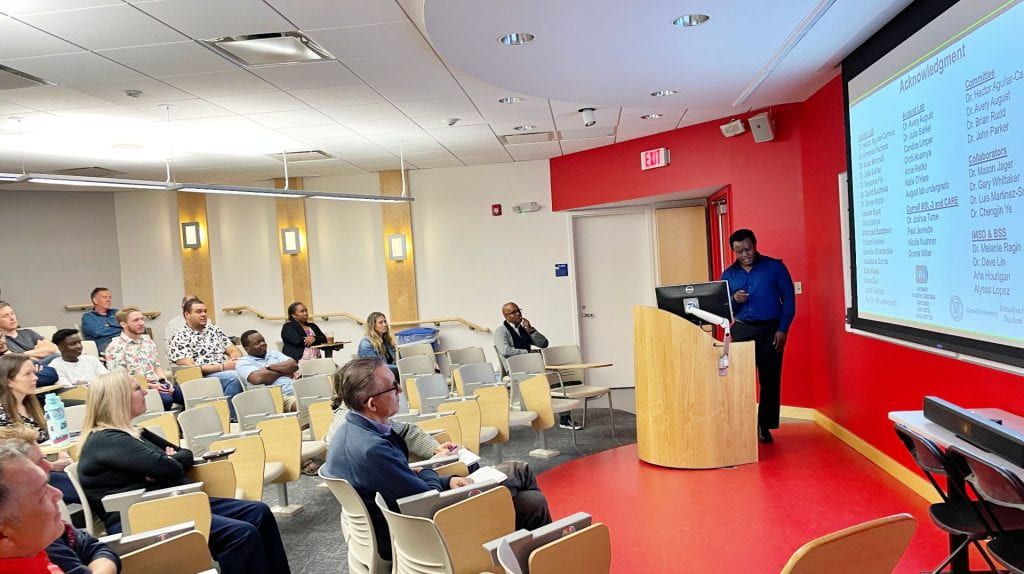
Brian Imbiakha passed his Ph.D. final exam in June 2023.
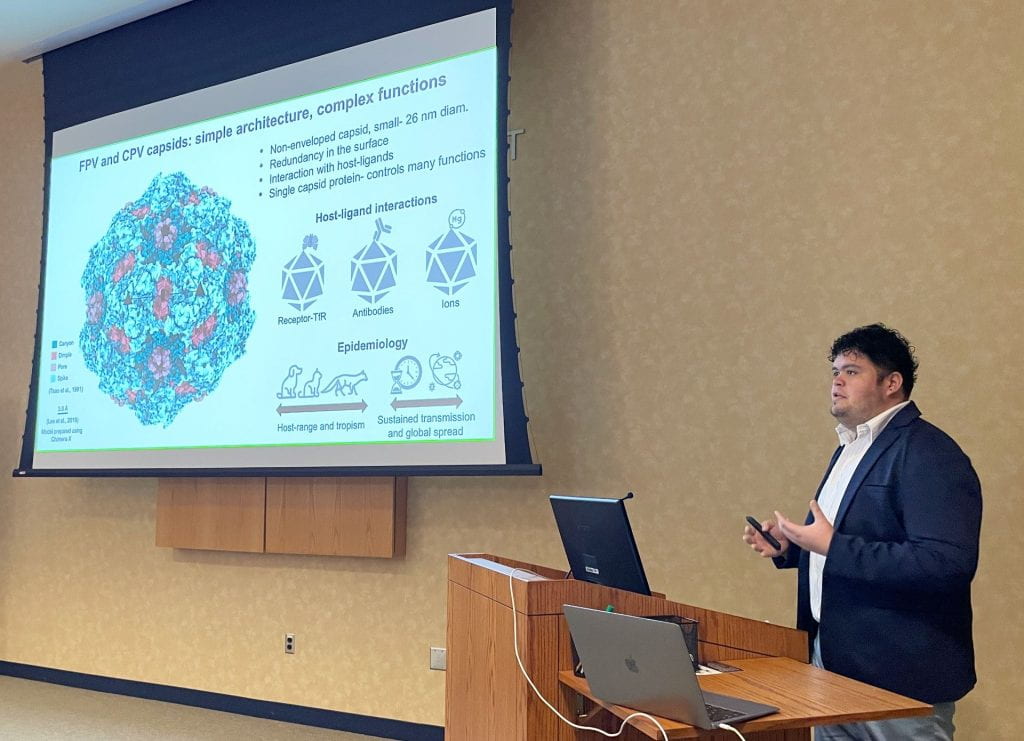
Robert López-Astacio passed his Ph.D. final exam in May 2023.
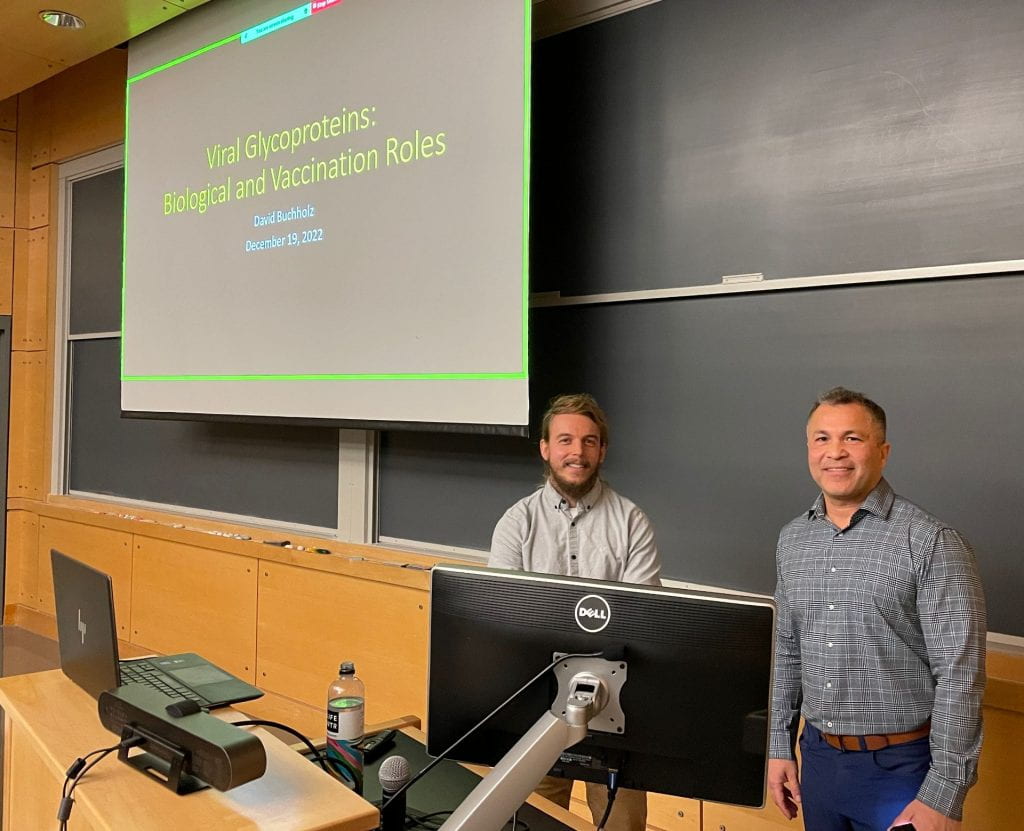
David Buchholz and his advisor Hector Aguilar-Carreno before the seminar for his thesis exam on December 19, 2022.
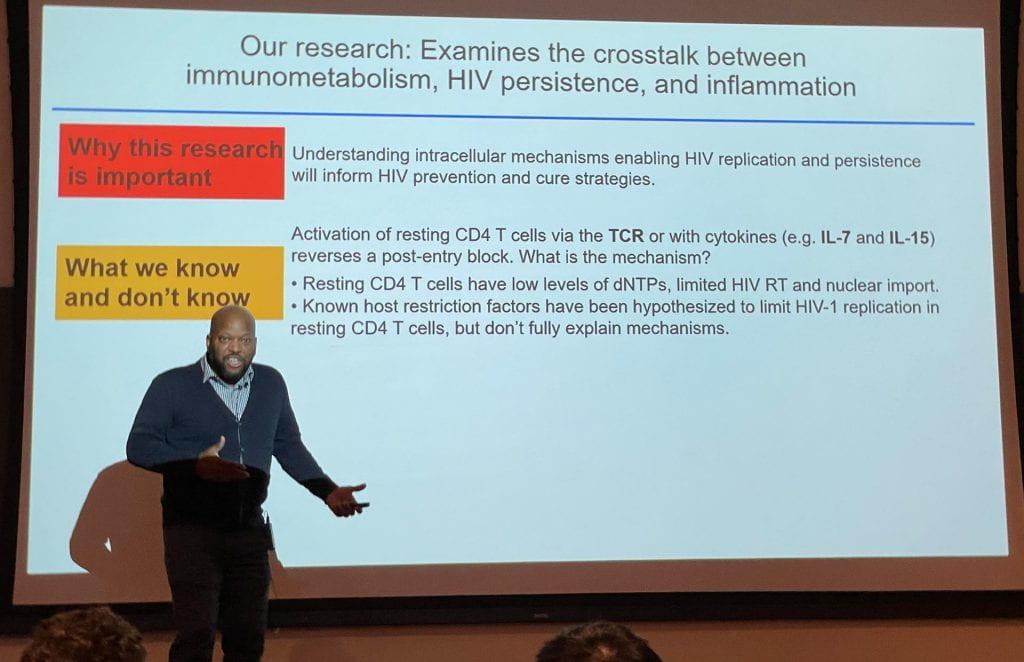
Harry Taylor from Syracuse University tells us about “The relationships between immunity, metabolism and viral infection, focusing on HIV and SARS CoV-2” in November 2022.
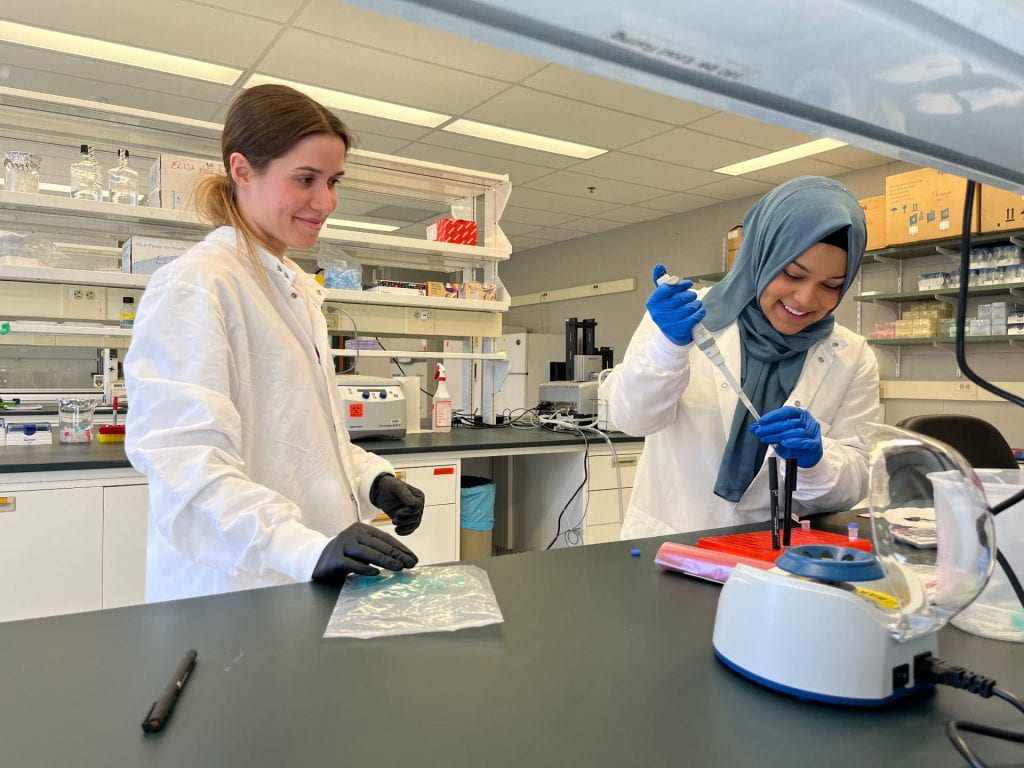
Sarah Woodyear and Janen Khan working on viruses in Sarah Caddy’s laboratory in the Baker Institute and Department of Microbiology and Immunology.
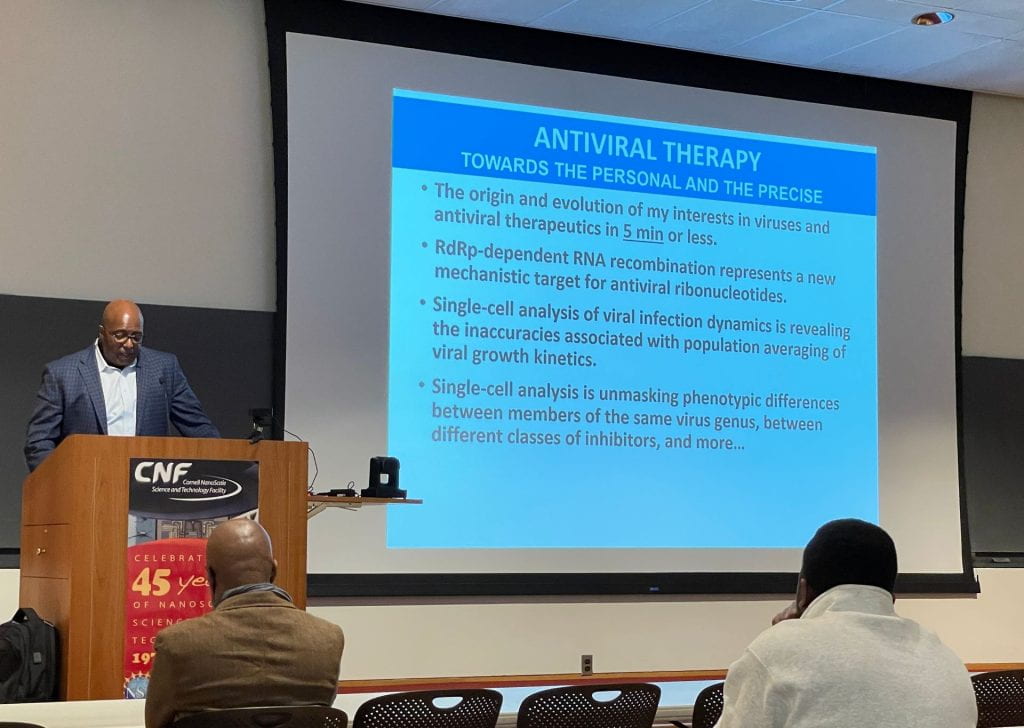
Dr. Craig Cameron from the University of North Carolina giving the Barbara McClintock Life Science Lecture on “Antiviral Therapy: Towards the Personal and the Precise” in October 2022.
Luis Martinez-Sobrido from the University of Rochester talking about his work on Zika virus, and the effects of mutations on the disease seen and the immunization that resulted.
